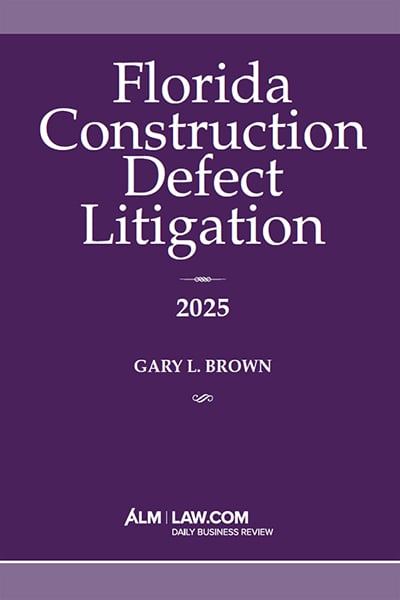0 results for 'Moritt Hock Hamroff'

Security Risks Surrounding Generative Artificial Intelligence
Given the lack of clarity of how GenAI operates and the likelihood that further risks will emerge as usage becomes more widespread, it is imperative that attorneys and their clients adopt proactive measures to safeguard against the inherent risks presented by these technologies.
Supreme Court's Trend in Ruling in Arbitration Topics Should Have Litigators Reflecting on Strategy
This article touches on several Supreme Court decisions related to the Federal Arbitration Act and the potential impact they have on the trajectory of a litigation and/or strategy of litigators.
Long Island Midmarket Firm Announces New Managing Partner, Leadership Structure
The announcement from Long Island-based Moritt Hock comes during a period of high turnover in leadership positions at a number of Am Law 200 firms.

CPLR 3212(b): A Provision That Allows Ambush at Summary Judgment
This article starts with a discussion on the current CPLR 3212(b)'s legislative history and proceeds to an examination of how courts have attempted to harmonize CPLR 3212(b) with CPLR 3101(d)(1)(i) and other procedural rules intended to ensure timely and orderly process, including Commercial Division Rule 13(c), which governs expert disclosure in the commercial part, and CPLR 3126, which addresses the court's discretion in imposing sanctions for violations of a discovery order.View more book results for the query "Moritt Hock Hamroff"


Artificial Intelligence in the Dispute Resolution Space: Can Robots Replace the Professionals?
The use of AI is pervading all aspects of the legal profession, and many are questioning the application of AI within each specific practice area. In the dispute resolution space, AI has already been a part of this practice area for some time—but can it replace human mediators?
IRC Section 1202: A Calculated Approach To Increase Tax Benefits
Section 1202 of the Internal Revenue Code provides substantial benefits to non-corporate shareholders of certain C corporations. Clients should be aware of the benefits and risks associated with forming or acquiring different types of entities.
Mid-Market Roundup: Some Midsize Firms Are Growing, Others Are Folding
Welcome to Mid-Market Roundup, where our team of regional editors shares the trends, challenges, opportunities and observations emerging in their markets.
Good Faith and Financial Distress: Can a Solvent Debtor Have a Valid Reorganizational Purpose?
In the 45 years since the enactment of the Bankruptcy Code, the Chapter 11 process has been successfully used by companies to address and resolve mass tort liabilities. However, what were once considered legitimate uses of Chapter 11 may now be rejected by bankruptcy courts as bad faith filings.
Standing of Trust Beneficiaries in Derivative Actions
Since New York case law generally holds that a trustee is the proper party to a suit in conflict situations, the aggrieved trust beneficiary is seemingly without options. Practitioners, however, should be familiar with two exceptions to the general rule in this context—the so-called "double-derivative" standing of a trust beneficiary and "equitable owner" approach to standing. This piece sets forth a brief basis for each theory and strategic considerations when bringing these types of matters.Trending Stories
Featured Firms
Law Offices of Gary Martin Hays & Associates, P.C.
(470) 294-1674
Law Offices of Mark E. Salomone
(857) 444-6468
Smith & Hassler
(713) 739-1250
More from ALM
- Legal Speak at General Counsel Conference East 2024: Virginia Griffith, Director of Business Development at OutsideGC 1 minute read
- Legal Speak at General Counsel Conference East 2024: Bill Tanenbaum, Partner & Chair, AI & Data Law Practice Group at Moses Singer 1 minute read
- Legal Speak at General Counsel Conference East 2024: Julie Cantor, Associate General Counsel at Studs, Inc. 1 minute read
Resources

Yearly Roundup: Strategic Insights for Law Firm Decision Making
Brought to you by CARET Legal
Download Now

Lex Machina Contracts: Commercial Litigation Report 2024
Brought to you by LexisNexis®
Download Now

White Collar Investigation Practice: Global Expertise in Complex Investigations
Brought to you by HaystackID
Download Now

Criminal Division's Evaluation of Corporate Compliance Programs: September 2024 Updates Review
Brought to you by NAVEX Global
Download Now



